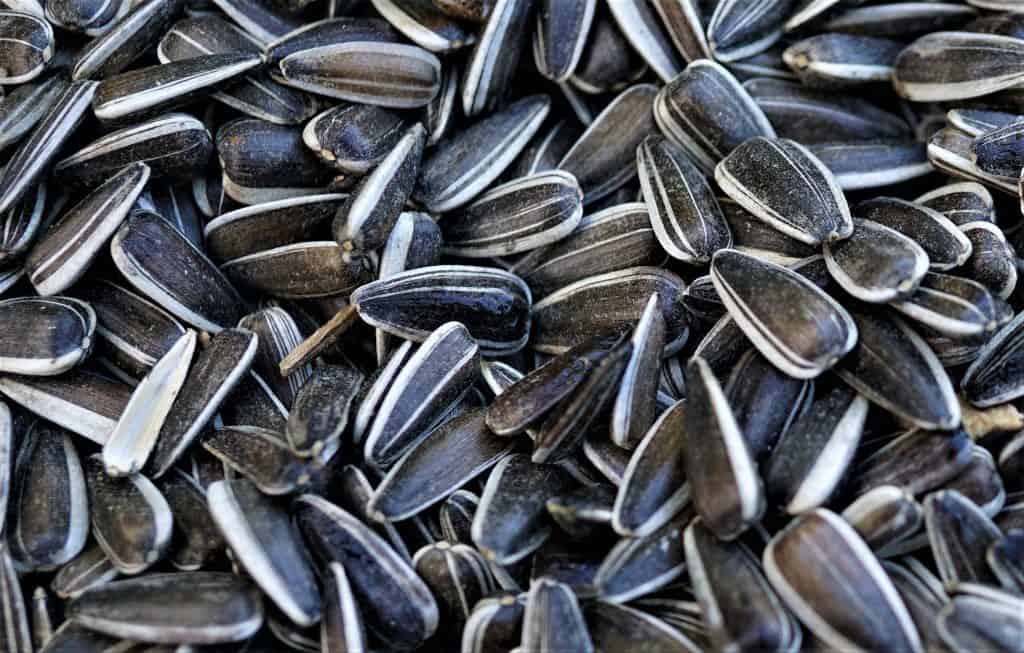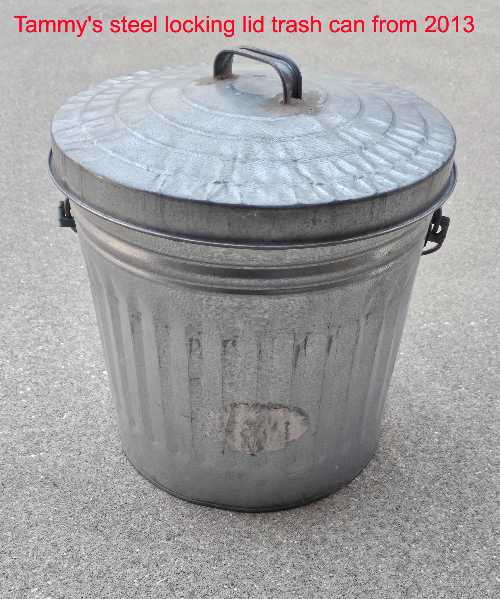Is it possible to feed birds without attracting rats? Yes, there are many effective methods to keep your feeding stations rat-free. Backyard birding is such a rewarding hobby I want everyone to know you can feed the birds without...
Is it possible to feed birds without attracting rats? Yes, there are many effective methods to keep your feeding stations rat-free.
Backyard birding is such a rewarding hobby I want everyone to know you can feed the birds without attracting rats. Itís a common concern and one that is easily addressed.
There are at least 8 highly effective methods to keep your feeding stations rat-free. I recommend implementing as many tactics as you can to ensure your feeders are rat-free:
Install a bird feeder pole. Install a baffle. Regularly move things around. Add spice to the food. Avoid unshelled birdseed. Store food in an airtight container. Keep the area beneath the feeder clean. Adjusting feeding time.All of the methods Iíll share can be used interchangeably or together. Letís explore the tactics for each of the methods.
8 Methods to Feed the Birds Without Attracting Rats
1. Install a Bird Feeder Pole
Rats usually prefer the ground to scour for food but will try to climb if the payoff is there. This is why a feeder attached to a tree or bush can easily fall victim to hungry rats and other rodents.†
While a tree trunk offers the ideal climbing surface for a rodent, a metal pole does not. Its slippery surface makes it a challenge for rodents to climb so thereís a higher likelihood theyíll quickly abandon the mission.
If you only have one bird feeder you can install it onto a bird feeder pole like the Squirrel Stopper Denali.
If you have several feeders, opt for a bird feeder pole station that comes with multiple hooks to hole the feeders. I have the Squirrel Stopper Sequoia in my yard.
Rats can jump quite a distance so make sure you install the bird feeder pole at least 10? from the nearest tree, roof, or any type of launching point.
2. Install a Baffle to the Pole
While a pole-mounted feeder is an effective approach, a pole with a baffle is next level!
A baffle is a dome-shaped or round device that can be attached to your bird feeder pole. It provides an added barrier to keep the rats from reaching the food. Many baffles bounce and move around creating a situation thatís impossible for the rat to get past.
You have a few options for installing the baffle:
Purchase a baffle and install it on your existing pole. Check out the standard squirrel/rodent baffle on JCs Wildlife. Purchase a new bird feeder pole system with the baffle already installed. I have the Squirrel Stopper Sequoia in my yard and there has never been a squirrel on my feeders. Iím confident it will also work for rodents. Create your own baffle as is shown in the tutorial below.3. Regularly move things around
I realize this sounds strange, but hear me out. Itís actually backed by science!
Rats naturally avoid unknown and new objects. This behavior is known as neophobia and is an instinct that protects them from potential threats.
By moving around garden furniture, tools, decorations, and feeders, you might be able to disorient rats and invoke their natural fear of change and unknown environments.†
4. Add a little spice
Include chili peppers in bird food! Birds are safe eating them because they donít taste capsaicin, the spicy element in chilies, and it doesnít harm them.
However, rats dislike the spicy taste of capsaicin and avoid foods with it, finding the hot sensation unpleasant.
Be cautious with chili pepper powder; itís safe for birds to eat, but it can irritate their eyes. A better option is to add whole pepper seeds to your chosen seed mix.
An easier approach is to buy birdseed with the spice already included. JCís Wildlife offers a variety of hot bird food designed to keep squirrels and other rodents away.
5. Avoid Unshelled Bird Seed

Feed birds shelled sunflower seeds, a favorite among backyard birds and a common ingredient in seed mixes.
Unshelled seeds leave husks that pile up under feeders, attracting rats. Shelled seeds reduce mess and keep rats away from your feeders.
6. Airtight food storage
Hungry rats can easily chew through plastic, Tupperware, and especially the original bag the seed was sold in. They also have the strength and intelligence to shove a loose-fitting lid off a container.
To keep the rats out of stored food itís crucial you store them in a strong, airtight container. A steel trash can with a tight-fitting lid is ideal. They even make smaller trash cans for exactly this purpose.
Rodents will not be able to remove the lid or chew through the metal. And, as long as you store the bin in a cool, dry location, the food will stay fresh. Bonus!
I use the Behrens 6 Gallon Steel Locking Lid Trash Can to store my birdseed.
7. Clean up Spilled Food Immediately
Clean up spilled food right away. Rats have a strong sense of smell and can find just a few seeds or crumbs.
Also, clean around bird feeders often, as they can get messy. Landscape under the feeders to keep the rats away and create a clean space for birds. Check out how I landscaped under my feeder to make clean up easy peasy.
8. Adjust feeding time
Most birds are active during the day, but rats are night creatures and look for food at night.
So, fill your feeders in the morning with just enough food for the dayís birds. Rats will likely be asleep then. This gives you time to clean up any dropped seeds in the evening before the rats come out at night.
Platform-style feeders make daily feeding simple. The open design allows you to literally toss the seed in. No messing around with opening or closing it. I use the Woodlink Going Green platform feeder in my yard.
Rat deterrent approaches to avoid†
Rats can be a problem for bird feeding, but they are an important part of nature and shouldnít be harmed. The tips above use the ratsí natural habits to help keep them away from bird feeders without hurting them. They offer practical ways to limit their access to the feeders.
With this in mind, the following methods should be avoided:
Donít use oil traps
Using bowls filled with bait and oil to lure rats in might seem like a humane and simple solution (the rat stays alive after all), but itís much more complex than that.†
Rats have very pronounced grooming habits and will immediately start cleaning themselves after coming into contact with oil. Not only is this highly stressful for the animal, but ingesting large quantities of oil can also be harmful to their digestive system.†
If a rat isnít found in the trap on time, this can even lead to death.†
Donít use Poison
Poison should never be on your list of options. In case itís not obvious, here are a few reasons to avoid rat poison:
Itís inhuman and causes a very slow, painful death. Other wildlife might eat poisoned rats and get harmed. It harms the environment and disrupts nature. It may not completely solve the rat problem. Rats can become resistant to poison over time. Poison can be unsafe for people and pets around.Donít use sticky traps
Sticky traps have been banned in many countries for good reason Ė they are incredibly inhumane! Animals who get stuck in them often panic and \ break fragile bones in the process, starve, or even suffocate.
There are reports of endangered and protected animals getting trapped in glue traps and suffering untimely deaths as a result.
Conclusion
A yard filled with a diverse range of wildlife brings us joy, but unwelcome guests like rats can be a source of frustration. Remember, there are humane methods of deterring rats from our bird feeders. Implement one or more of these tactics and the rats will soon leave your yard in search of tasty treats elsewhere:
Install a pole-mounted-feeder. Install a baffle to your feeder. Regularly move things around. Add spice to the food. Avoid unshelled birdseed. Store food in an airtight container. Keep the area beneath the feeder clean. Adjusting feeding time.These approaches allow us to continue providing food for our beloved birds without causing harm to other animals.
Do you have a rat-deterring method youíd like to share? Leave a comment below!









